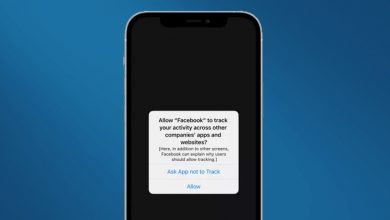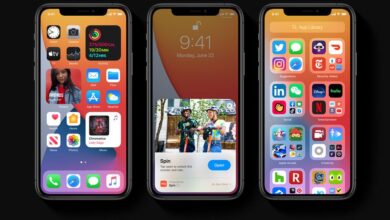

The coronavirus pandemic across the globe has led to businesses, schools, and institutions to shut down to ensure social distancing to reduce the spread of the virus. Millions of people are now working from their home which in turn has led to a rise in video calling apps as they are being used for holding virtual meetings, conferences, and more. Video calling apps are also ideal for use in the current situation as they help with social distancing.
Most people likely only know about FaceTime, WhatsApp and Google Duo for making video calls. However, there are plenty of other video calling services out there with some advanced features baked in which you will find handy while working from home or for attending online classes.
Check out some of our recommendations for the best group video calling apps ideal for hosting virtual meetings or to just catch up with your friends or family.
Contents
The Best Apps for Group Video Calling and Meetings
Google Duo

In many ways, Google Duo is the company’s rival to FaceTime. The video calling service now comes pre-loaded on almost all Android devices and Samsung has even started integrating Duo video calls right in the Dialer app of the Galaxy S20 series.
What sets Google Duo apart from other video calling services in this list is how efficiently it works on low-bandwidth connections. It is the only video calling service in this list that can work efficiently on slow mobile data connections as well. Other notable features of Google Duo include support for AR effects, Night mode that helps improve video call quality in low-light scenarios, and more. Duo also supports group video calling with up to 12 participants. However, the entire process of making group video calls is a bit too complicated and you cannot convert an ongoing video call into a group video call.
For non-professional use, I will any day prefer Google Duo over the likes of Skype and WhatsApp due to its superior video call quality and other features.
Pros
- Google Duo is available on iPhone, Android, and the web. However, the web client is barebones and does not support group video calling
- One needs to log into the service using their Google account or phone number
- Video calls are end-to-end encrypted
Cons
- Group video calling method is a bit complex
- The process to start a group video call on the service is also a bit confusing
➤ Download

WhatsApp is used by over a billion people worldwide and it is easily among the most popular messaging service out there. Since video calling is baked right into WhatsApp, it is used by a lot of people across the world. WhatsApp video calling works best for casual users as it is easy and straightforward to use. Given that WhatsApp is not available on PC and lacks collaboration tools, it is not really meant to be used for virtual meetings or conferences.
Pros
- Chances are almost everyone in your group is already on WhatsApp so they won’t have to install a new app just for video calling purposes
- The entire process to make video calls is also very easy
- Already used by over a billion people worldwide
- End-to-end encryption for calls
Cons
- Group video calls are limited to a maximum of 4 participants which is on the lower side
- Video calling is only available on iPhone and Android and not on PC
- Lacks AR effects, Night mode, or other advanced features
- No virtual background support
➤ Download
FaceTime

FaceTime video calls have been around forever. For iPhone users, FaceTime is the video calling service of choice since it is baked natively into the OS. It also allows owners of iPhone X and newer to use Animojis while on video calls. FaceTime also supports group video calling with up to 32 participants which is good enough for personal use for most users. The only issue is that with so many participants, the UI starts to feel a bit cluttered. FaceTime group video calls are ideal for personal use and not really recommended for professional group video calls as they lack any kind of collaboration tools.
Pros
- Simple and straightforward to use for iPhone users
- Wide user base
- Supports up to 32 participants in a group video call
- Supports Animojis in video calls
- Calls are end-to-end encrypted
Cons
- Only available on iPhone, iPad and Mac
- Lacks advanced video calling features
- No virtual background support
Skype

Skype has been around for ages and it is easily one of the most popular video calling services out there. However, despite being so old, Skype does not really dominate the market. Apart from one-on-one chat, Skype offers group HD video calling, screen sharing, call recording, live subtitles, and more. It is also available across all major platforms including Xbox and web. Group video calling on Skype supports up to 50 participants at once.
However, Skype is far from perfect. It frequently has connection issues and the video/audio quality even on fast internet connections is not that good. It is also not as easy to use as WhatsApp or FaceTime.
Pros
- Feature-rich service
- Calls are end-to-end encrypted
- Screen sharing support
- Available across all major platforms
- Live subtitles
- Background Blur
Cons
- Poor video call quality
- Unreliable and buggy
➤ Download
Houseparty

Houseparty is probably the most fun video calling service on this list. It is also a bit different in how it works. Unlike other video calling apps in this list where you need to call someone, Houseparty has a level of spontaneity attached to it. Basically, as long as you are available on Houseparty, any of your friends can join an existing conversation or an open “room.” Not everyone will like this level of spontaneity but it definitely sets Houseparty apart. Additionally, the service lets you play games with your friends while on a video call. You can play games like ‘Draw’ or a quiz to up the fun quotient. If you are looking to host a virtual fun party during one of these lockdown days, definitely go with Houseparty.
Houseparty is free to download and use and it is available on iPhone, Android, and macOS. For Windows, you will have to make use of a Houseparty Chrome extension.
Pros
- Can play fun games while on video calls
- Has a level of spontaneity to it
- Completely free to use
Cons
- Not everyone will like the spontaneity
- Has faced temporary outages due to surge in demand
➤ Download
Best Group Video Calling Apps for Businesses and Enterprises
Microsoft Teams

Microsoft Teams is available for Office 365 subscribers and meant only for enterprises. Just like G Suite, if an office already has an Office 365, Teams is the default and ideal choice for them to hold virtual meetings. Teams is more than just a video calling service though. It is an internal communication tool for businesses and enterprises which also offers video-calling features. Think of it as a Slack alternative from Microsoft.
Apart from holding group video calls, you can use Teams to hold web conferences, live events with up to 10,000 participants, hold an audio conference, and more. Teams has every feature that a company could ask for: the ability to schedule meetings, the ability to chat with participants while in a meeting, file sharing, record video meetings, and more. Barring Linux, Teams is also available across all major platforms.
Pros
- Can be used to hold live events
- Packs advanced features like Screen Sharing, File Sharing, etc.
- Native integration with Office apps
- Background blur
Cons
- Requires an Office 365 subscription
➤ Download
Zoom
The COVID-19 pandemic has led to a massive rise in Zoom’s userbase. The app is being used by enterprises, schools, startups, and families alike to hold video meetings. Zoom is really easy to use and makes hosting virtual meetings with a large number of people a breeze. It is also available across every platform that one could think of – Windows, Mac, Linux, iPhone, Android. It also has plenty of collaboration tools like screen share, breakout rooms, etc. to make virtual meetings easier. No wonder then that Zoom has become the go-to video conferencing app for many companies now.
The best thing about Zoom is that you can create a virtual room for others to join without them having to sign up for the service or being a part of the same enterprise as you. You can also join Zoom video calls if you don’t have access to a microphone or webcam which is not possible with Duo, FaceTime, or WhatsApp. It also offers in-room chat so you can send group texts or drop a private message to someone while in a video meeting. The free version of Zoom allows one to host up to 40 minutes of a virtual meeting with up to 100 participants.
However, Zoom is not without its own set of issues. Major security lapses have been discovered in the service over the last week and despite the company claims, it has been discovered that Zoom does not use end-to-end encryption.
Pros
- Makes it extremely easy to host large virtual meetings
- Offers excellent collaborative tools like screen sharing and file sharing
- Available across all major platforms
- No need to sign up for joining Zoom meetings
- Virtual background support
Cons
- Major security lapses have been discovered
- No end-to-end encryption
➤ Download
Hangouts Meet

Google Meet, which used to be known as Hangouts Meet, is Google’s video calling solution for enterprises and its G Suite subscribers. The video calling service comes bundled with G Suite subscription which means plenty of enterprises and small businesses already have access to it. While Meet is pretty barebones when compared to Zoom, it does offer enough features that one will require for hosting large virtual meetings.
If you invite someone for a Hangouts Meet call and the invitation is accepted, the meeting time is automatically added to their Google Calendar. The basic version of Hangouts Meet supports up to 100 participants and offers call-in support. One can join Meet video calls right from their browser without having to install any app on their PC.
To help businesses fight the COVID-19 pandemic, Google has made all top-end paid features of Google Meet available for free for all users with a Google account (for example, if you’re a @gmail.com user) and not just G Suite account for free until September 30. Google also won’t enforce the 60-minute time limit for the free product until the end of September. This includes the ability to host meetings with up to 100 participants for the free product, and up to 250 participants for G Suite users, live stream video meetings, and the ability to record meetings.
Pros
- Screen sharing and other useful collaborative tools
- Ideal for enterprises who are already paying for G Suite
- Integration with Google Drive, Gmail, and Calendar
- Works across all platforms
- Calls are end-to-end encrypted
Cons
- No free tier (Free for Google account users until September end)
- UI is not really intuitive to use
- No virtual background support
➤ Download
As you can see, there are plenty of video calling services available in the market that you can select depending on your needs and requirements. Which video calling service have you been using during the COVID-19 pandemic to host virtual meetings or to just catch up with your family? Drop a comment and let us know!
This post was last updated on April 30, 2020.






